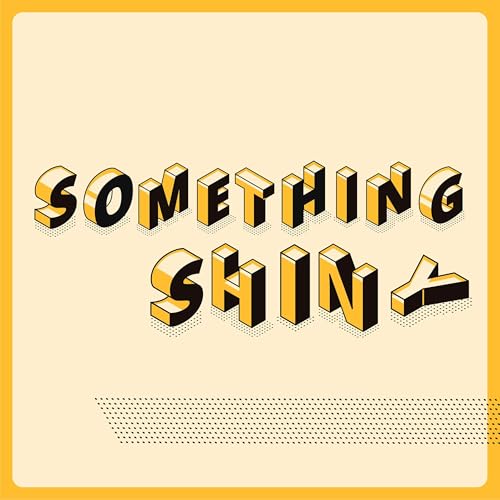-
サマリー
あらすじ・解説
Why do we push ourselves so hard, hyperfocus, are ready to do 80 things at once, then crash and run out of steam before we ever move the needle? How much does this boom/bust cycle harm us, our relationships, and our wellbeing? David and Isabelle discuss how, as neurodivergent folx, we can't see our own energy bars and how this gets us into trouble. They also describe a game changing idea, of making their energy bars observable, that has helped them both actually see and attend to their needs well for the first time--and why they were compelled to build this into a Something Shiny toolkit (coming soon!). ----The things we use to help ourselves and reclaim our time doesn’t actually give us more resources, it can take resources away from us. David, for example, feels very successful when he avoids the YouTube video reel hole, scrolling from a sports ball thing to a weird deck someone built…he didn’t notice the spoons were going, he took up energy, he sat too long, he didn’t get something done. Sometimes the things and cycles we get into what we get into when we’re avoiding things, don’t help us. This connects to a big course launch coming soon from Something Shiny! A big aha between David and Isabelle has been recognizing that their energy bars are invisible to them, and with their shorter time horizons, Isabelle assumes that the energy she has is forever, and then halfway through taking on so many tasks sucks. She runs out of all her energy and momentum before she knows it, and it’s hyperfocus and intensity and crash. It hurts her relationships, her life, her health, so how can we actually see our energy bar? Especially in times like this where demands are many and slots are few. David points out that the way they check on their energy bar is odd; you see that your gas tank is full; “I got gas!” And half full “I got gas!” And quarter full “I got gas!” We ask if there’s gas, not if it’s enough, or if it matches what we’re trying to do. We push past this point without knowing it. David and Isabelle crisped themselves during recording this course without even knowing it. David lost the gas to eat, to observe the world. This is why David and Isabelle took time off this summer: a step by step guide to learn how to read and respond to your energy bar that makes it so your life gets easier. It’s fusing together what David and Isabelle know about how neurospicy brains work and then actually building the skills that help. It has deeply altered Isabelle’s sense of how she feels about herself on any given day. It’s the closest she’s coming to what she expects of herself day to day and responds to her needs. Picture the gas tank, but you’re in a car with your whole family, and your whole family has to get to the emergency room, she does not have time to get to the gas station and she needs to get the whole family there STAT. Isabelle’s self-neglect is real. The term “Burnout” is so interesting, coming from Industrial Revolution terms, that when a machine ran out of resources would run out of fuel, the machine destroys itself because it runs out of fuel. It’s not just that we’re running on fumes, it’s that when we’re running on fumes we have destroyed ourselves, our relationships. Isabelle, in her attempt to get to the emergency room, she gets angry, impatient, taking in any request, and then she is engaging in toxic behavior patterns, asking the world to STOP, but she’s hurting herself. David names that you’re not just hurting yourself, you’re hurting other people, you’re leaking out. When we’re done leaking, we don’t know what we’ve done to hurt other people and we’re hurting—both things are true. David thinks about his behavioral roots: the first thing you do to make change is you make your behavior observable. It’s really hard to actually observe energy, talking about the endings and beginnings we can't see, it makes different parts of back to school or our burnout observable. It’s observable so we can change some of these things: did you need a break? Would it have been better to be late to this? Where do we get those messages about what we’re supposed to do. Even as the term accountable (like “potential”) can make your spine curl, because it's been leveled at us anticipating mistakes we couldn’t, how can we be accountable for our own breaks because no one is going to give them to us. By the time Isabelle is running on fumes, that is not the time she has any bandwidth to think her way out of her feelings, and that's not a strength she has anyway, she can’t tell herself it’s going to be okay, by nervous system does not work this way, she has to take an action to change her internal state, but she’s so crispy to think that she needs a break—the idea of thinking she needs a break and then taking a break is 6 steps too far, and then she gets cranky, she gets grumpy, blaming everything around her, but it’s a set up when ...



